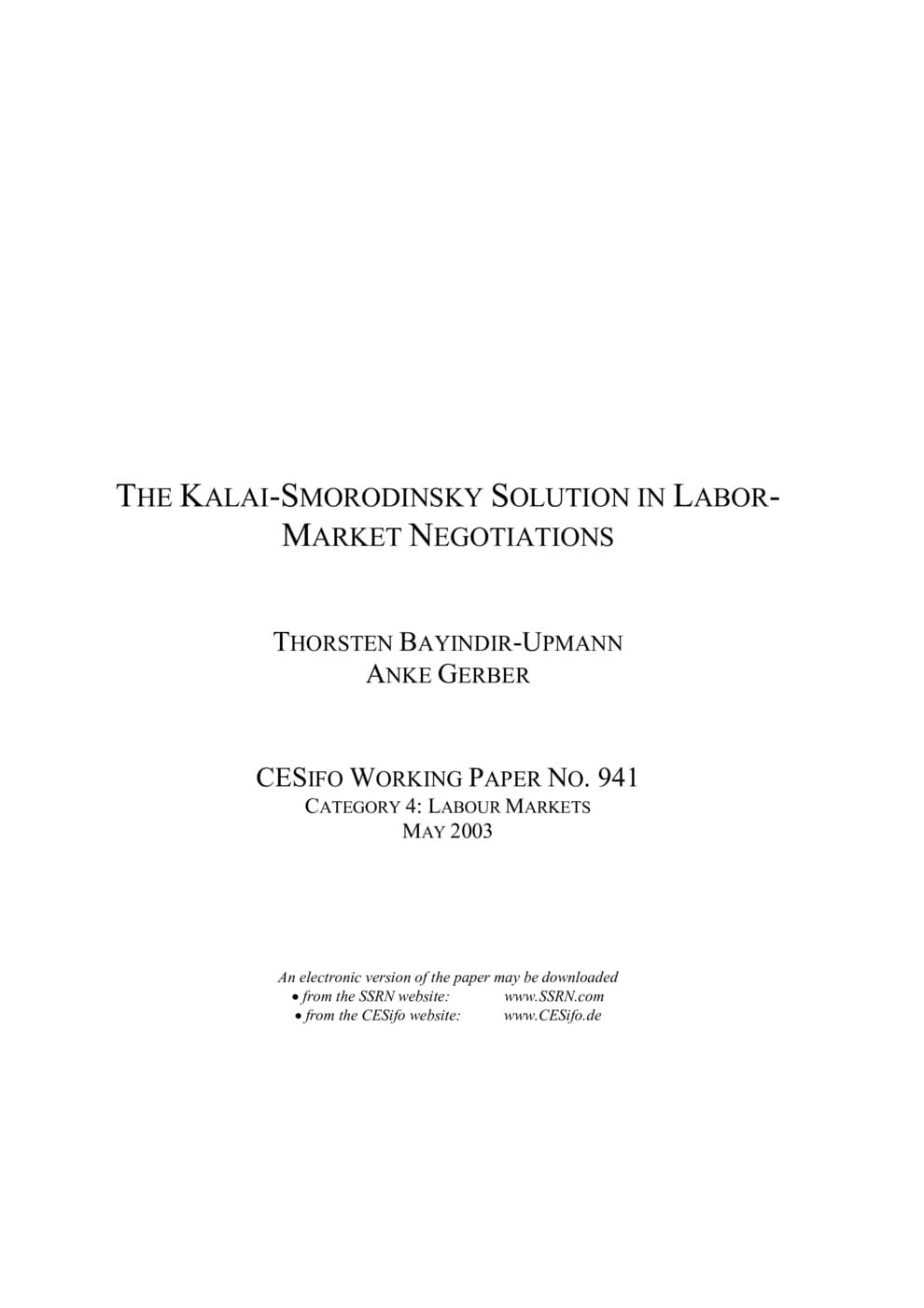The Kalai-Smorodinsky Solution in Labor-Market Negotiations
CESifo, Munich, 2003
CESifo Working Paper No. 941

Authors who consider efficient bargaining on the labor market predominantly focus on the Nash-bargaining solution. It seems, however, that actual labor market negotiations between an employers’ federation and a labor union are often characterized by mutual concessions, which may be accounted for by an application of the Kalai-Smorodinsky solution to labor-market negotiations. Correspondingly, we investigate how a government can influence the equilibrium on the labor market by changing the reservation wage when the equilibrium is determined by the Kalai-Smorodinsky solution. We find that the induced employment effects may differ substantially when compared with the Nash bargaining solution. Hence, substituting the Kalai-Smorodinsky by the Nash bargaining solution is not innocuous, when actual negotiations are characterized by mutual incremental concessions.